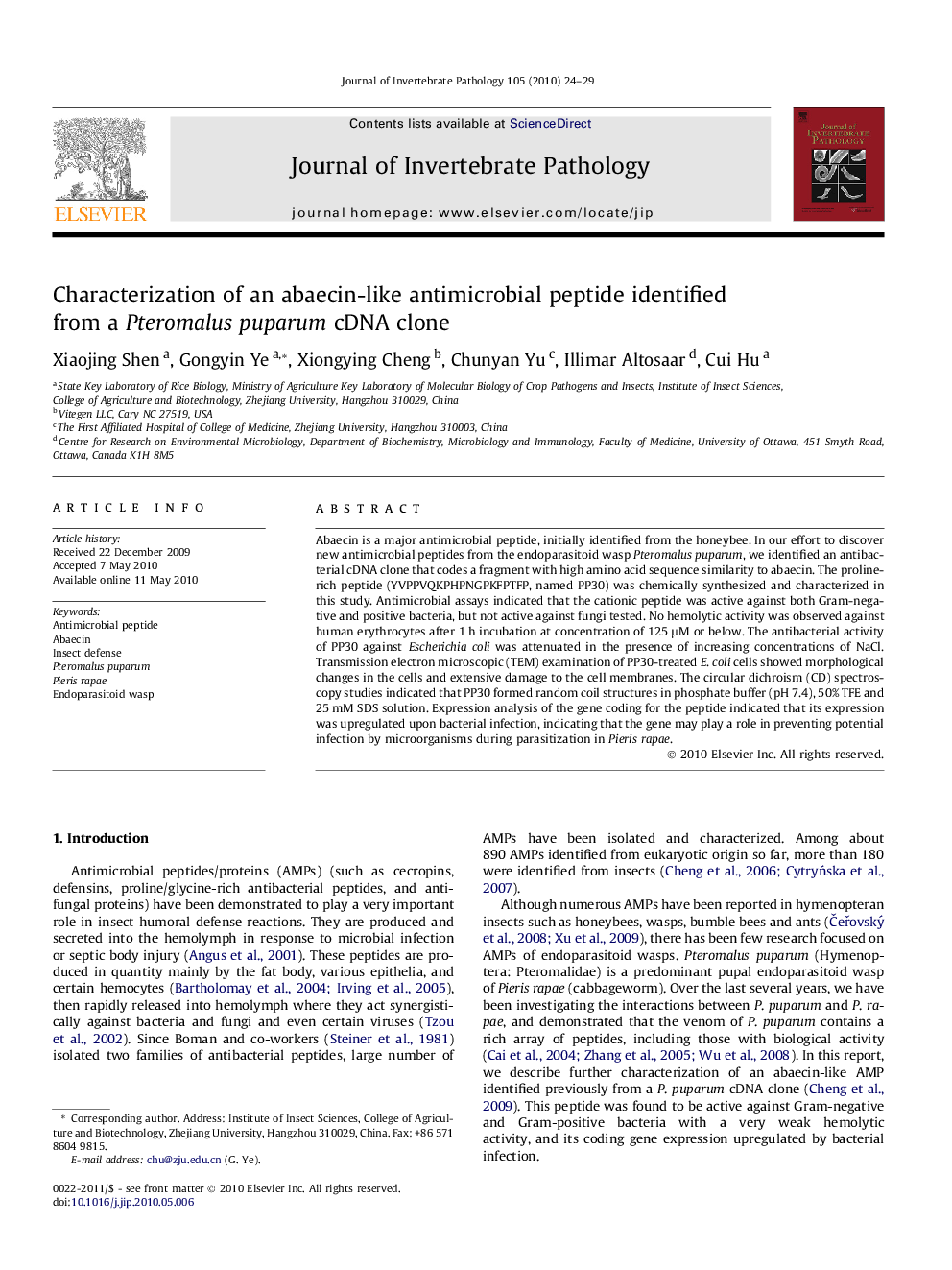| Article ID | Journal | Published Year | Pages | File Type |
|---|---|---|---|---|
| 4558267 | Journal of Invertebrate Pathology | 2010 | 6 Pages |
Abaecin is a major antimicrobial peptide, initially identified from the honeybee. In our effort to discover new antimicrobial peptides from the endoparasitoid wasp Pteromalus puparum, we identified an antibacterial cDNA clone that codes a fragment with high amino acid sequence similarity to abaecin. The proline-rich peptide (YVPPVQKPHPNGPKFPTFP, named PP30) was chemically synthesized and characterized in this study. Antimicrobial assays indicated that the cationic peptide was active against both Gram-negative and positive bacteria, but not active against fungi tested. No hemolytic activity was observed against human erythrocytes after 1 h incubation at concentration of 125 μM or below. The antibacterial activity of PP30 against Escherichia coli was attenuated in the presence of increasing concentrations of NaCl. Transmission electron microscopic (TEM) examination of PP30-treated E. coli cells showed morphological changes in the cells and extensive damage to the cell membranes. The circular dichroism (CD) spectroscopy studies indicated that PP30 formed random coil structures in phosphate buffer (pH 7.4), 50% TFE and 25 mM SDS solution. Expression analysis of the gene coding for the peptide indicated that its expression was upregulated upon bacterial infection, indicating that the gene may play a role in preventing potential infection by microorganisms during parasitization in Pieris rapae.
